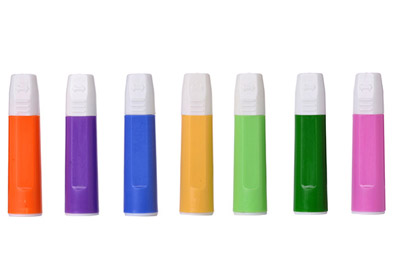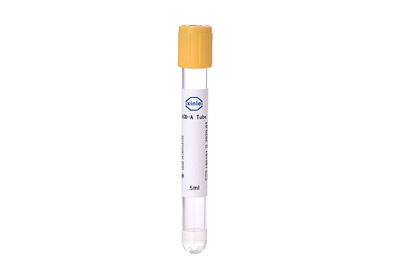Capillary blood is mainly collected from earlobe and fingertip. Newborns or babies usually take blood from the heel, and children usually take blood from the ring finger. Why do you usually choose to take blood with your index finger or ring finger in routine tests? Blood is usually collected from fingers or earlobe in adults. Earlobe blood collection is light and easy to operate and is suitable for fat and fat collection, especially those with thick finger skin. However, the peripheral blood circulation of the earlobe is poor, blood cells are prone to stagnation, and the test result is not constant enough due to the influence of temperature. The red blood cell, white blood cell, hemoglobin, and red blood cell-specific volume results are higher than venous blood, especially the small fluctuations in winter. Finger blood collection is easy to operate and more blood can be obtained with Capillary Blood Collection Product.
Blood Collection Safety Lancet
Infants and young children can use their thumbs or heels for blood collection. For patients with severe burns, you can choose to collect blood from the entire skin. The blood collection device is best to use a triangular needle or a special "Blood Collection Safety Lancet", especially the latter is conducive to the quality control of blood collection technology. It should be strictly implemented in order to avoid crossover Needle for one person. Attention should be paid to the appropriate depth of puncture, and do not squeeze hard to avoid mixing with tissue fluid and affecting the test results.
In the routine inspection work, due to the poor blood circulation of the earlobe, it is greatly affected by the external temperature, which is less than that of the fingers, but the pain of taking blood from the fingertips is more obvious. The reason why the blood is usually collected on the index finger or ring finger is because of the five fingers, only the forefinger and ring finger's synovial sac does not extend to the palm, and it is an "independent circulation", which is not connected to each other, and can obtain a more stable measurement result.
What should I pay attention to when collecting blood?
1. Wash the skin before blood collection.
2. Don't take blood immediately after entering from the cold outdoors in winter. You should warm your body, especially the hand to collect blood, and then take the blood.
3. Do not use hot water to heat your fingers before taking blood from your fingers. Keep your fingers dry. If you have wounds on your fingertips, paronychia, redness, or skin disease, avoid using this finger.
What is the procedure for blood collection?
1. Preparation
Take the bullet head, connect the micropipette to the latex pipette, check whether the connection is leaking, or take a disposable micropipette for future use.
2. Disinfection
Wipe the blood collection site with an iodine cotton swab and allow it to dry.
3. Acupuncture
Fix the blood collection site with the thumb and index finger of the left hand to tighten the skin and subcutaneous tissue. Hold the disposable sterilized blood collection needle in the right hand and pierce it from the inner side of the finger with a depth of 2-3mm.
4. Wiping blood
After the blood naturally flows out, wipe off the first drop of blood with a sterile dry cotton ball.
5. Bloodsucking
Use Capillary Blood Collection Micro Tube to suck blood, then press the wound with a sterile dry cotton ball to stop bleeding.
Precautions for capillary blood collection include:
A. There must be no abnormalities such as edema at the blood collection site
B. The penetration depth of the lancet is preferable 4-5mm
C. After disinfection, be sure to wait for ethanol to evaporate and puncture
D. Operate strictly according to aseptic technique
E. When performing multiple manual inspections, the sequence of blood collection should be considered

Pulished on Jun. 24, 2020

Pulished on Jun. 16, 2020